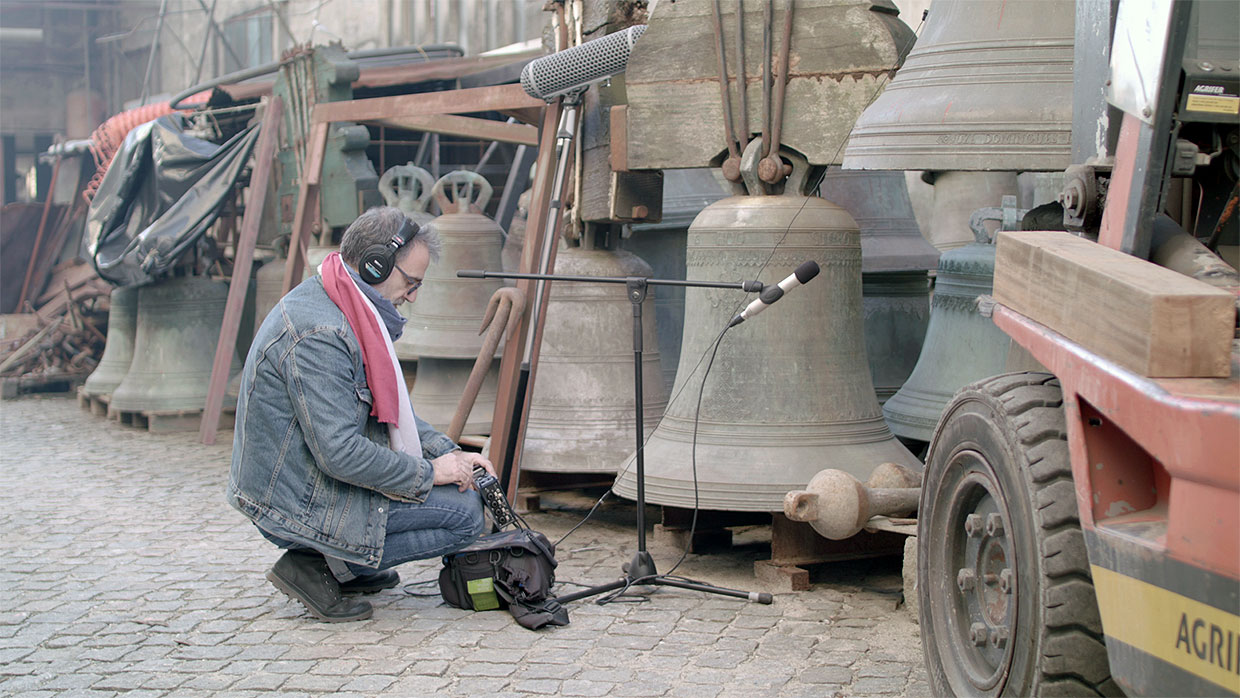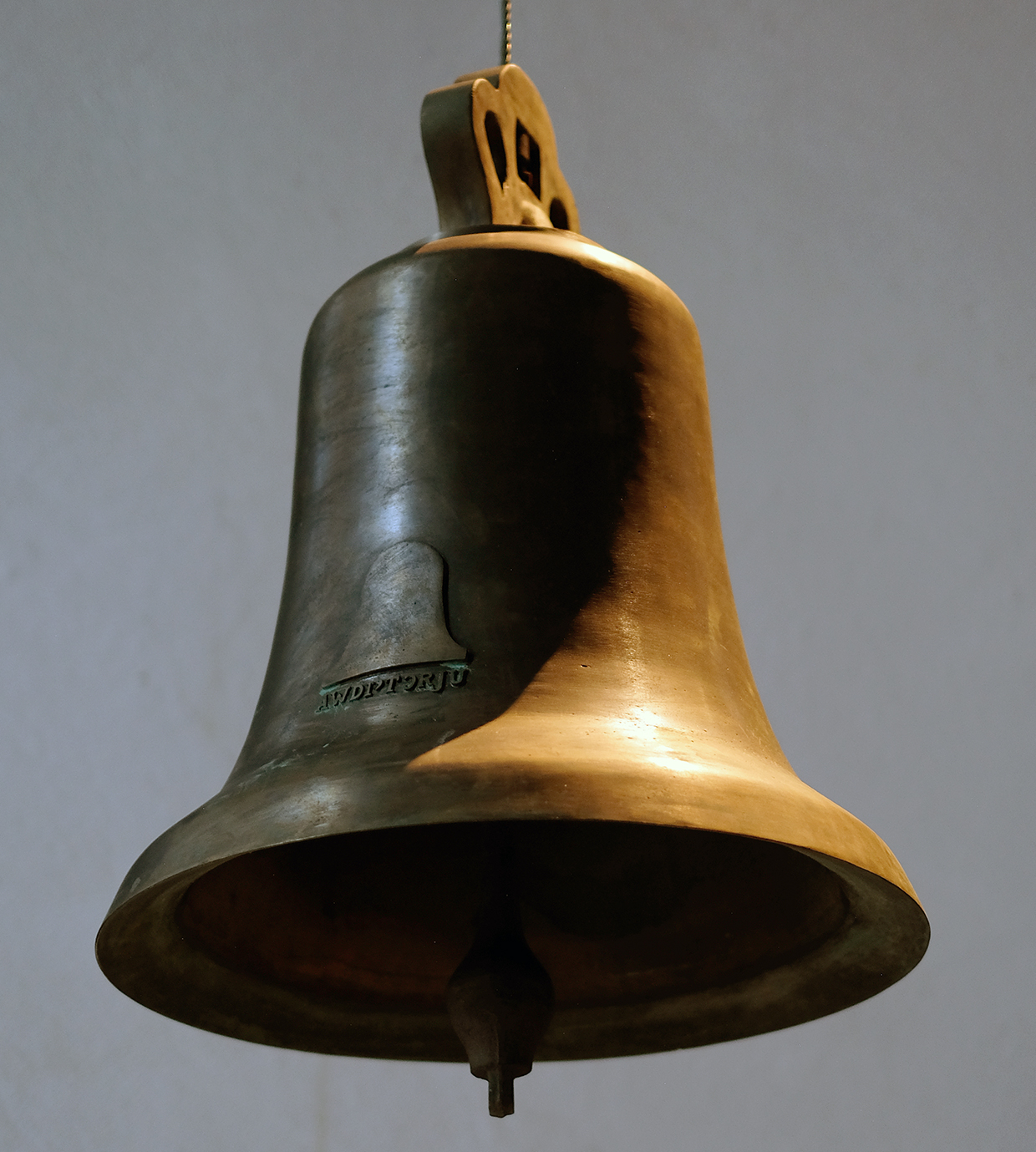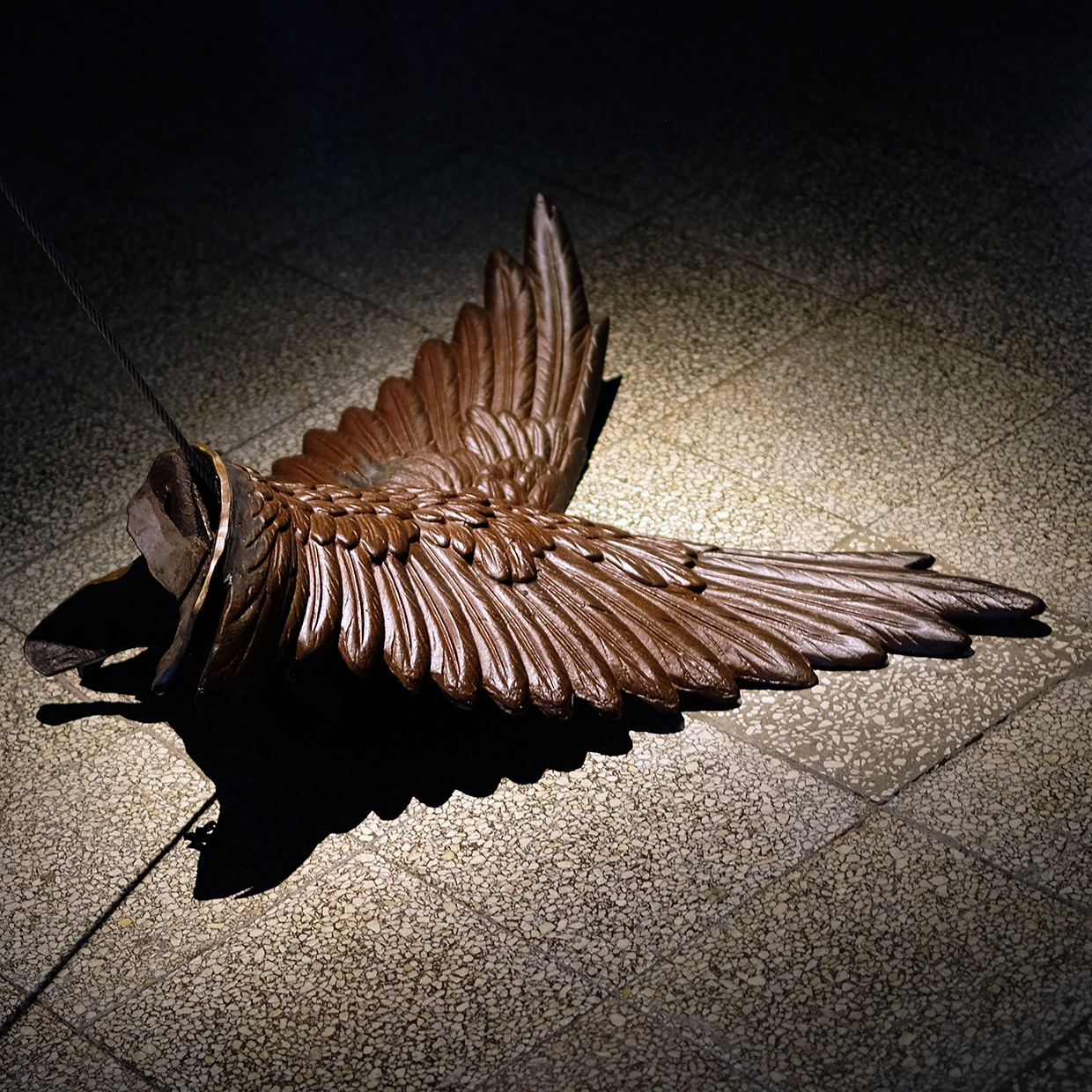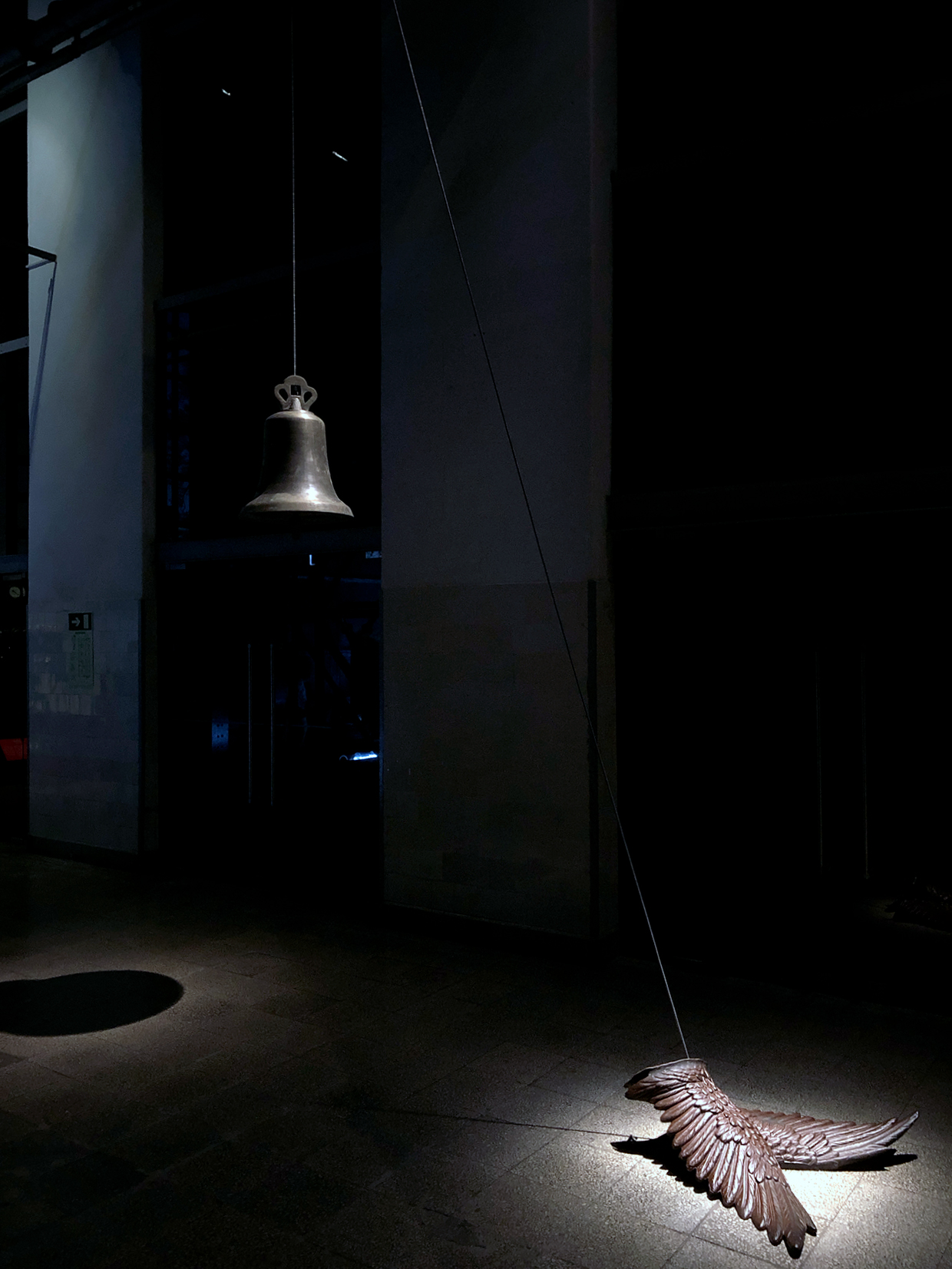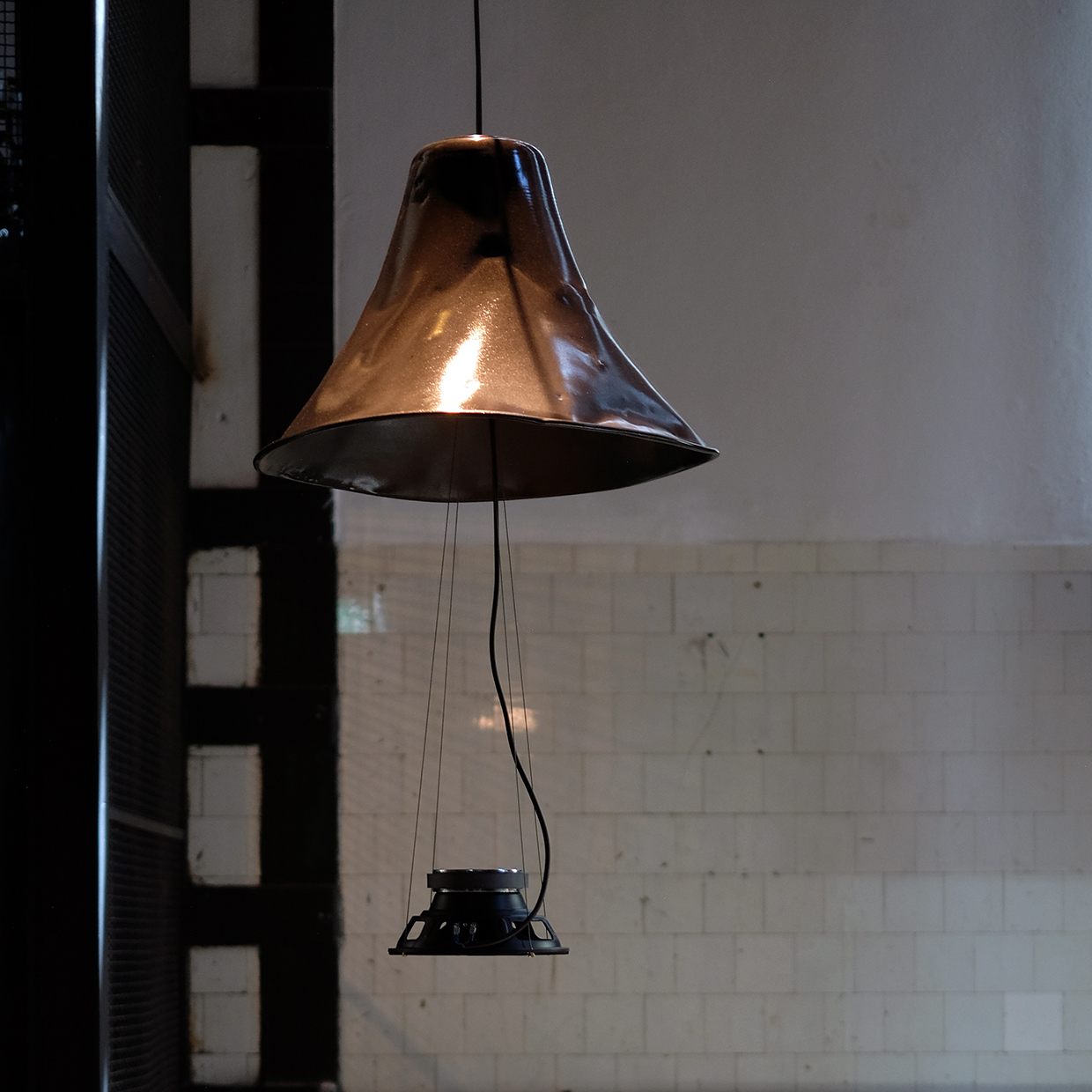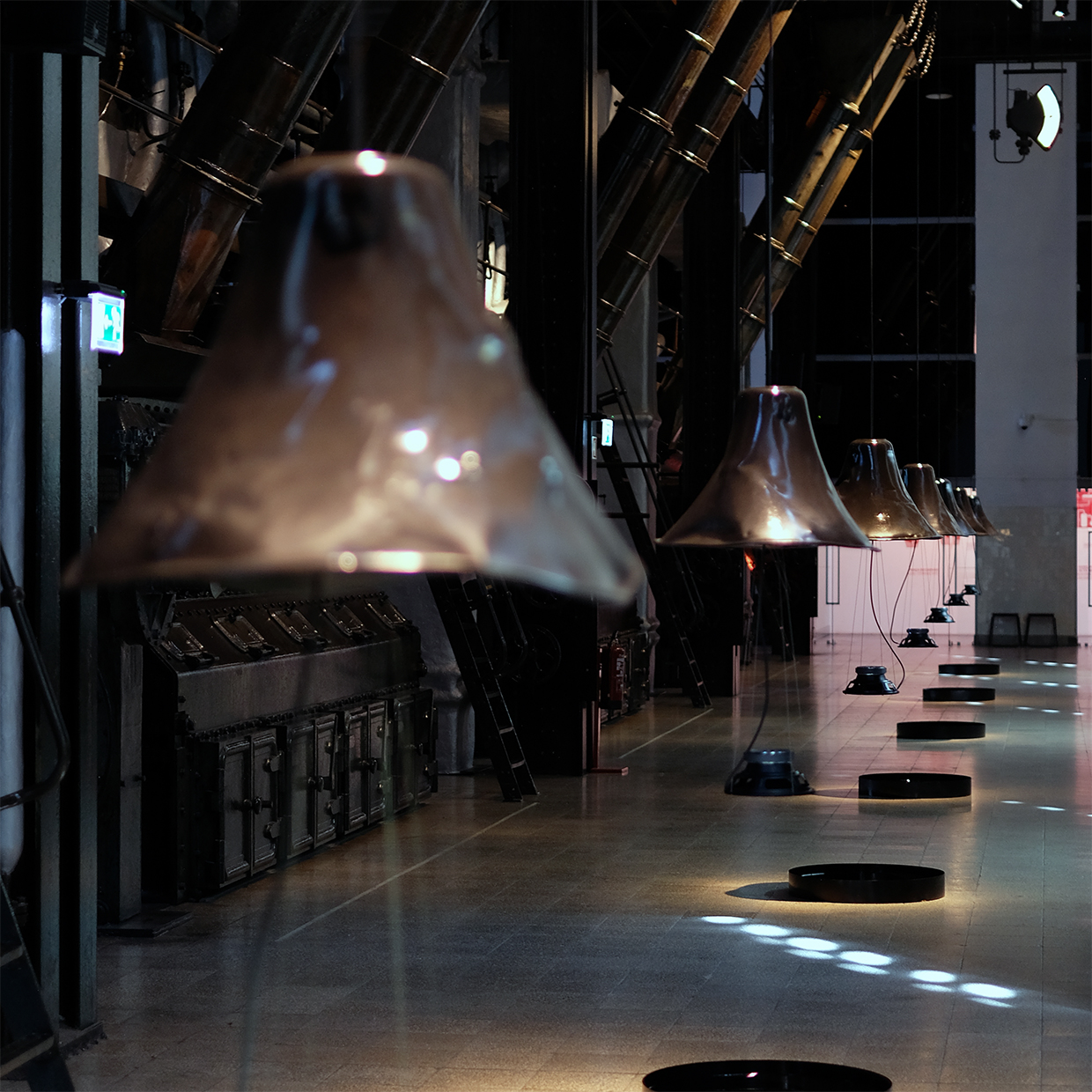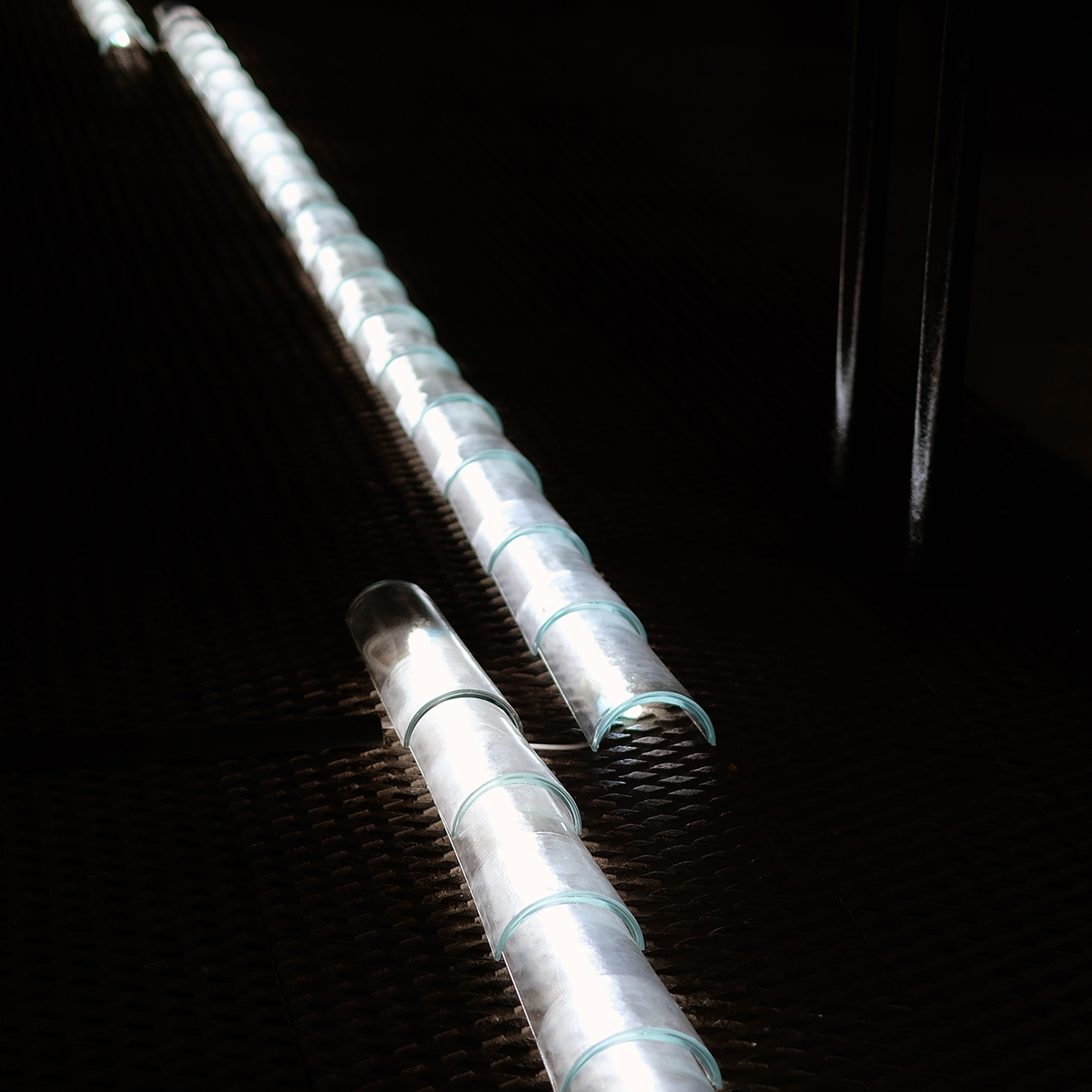MAAT, Lisboa
With a consolidated career spanning over three decades, Pedro Tudela (Viseu, 1962) combines disciplines such as painting, drawing, sculpture, installation, photography and sound installation.
In his case, and in the context of Portuguese art in the 1990s, the use of sound reveals a pioneering way of treating it, that is not exclusively illustrative or associated to a sculptural or installation practice.
The title of this exhibition is awdiˈtɔrju — the phonetic transcription of the word “auditório” [auditorium]. The use of this relatively rarely-used linguistic convention generates a moment of initial surprise, which refers precisely to the meaning and perceptive “digression” that the artist’s work demands from the spectator, in a multisensorial journey.
The Boiler Hall is the stage for an immersive experience that combines a sound work accompanied by three moments, in which a sculpture and two installations inhabit the space in a meticulously designed choreography based on different elements, such as a bell (specifically produced for this context) which is either suspended or carries wings affixed to the ground, seven bell-shaped jars that emit dripping sounds towards seven black holes and a corridor of light shielded by transparent tiles.
The entire movement of the sound reverberates in the space in a mapping which is as ethereal as it is physical, manipulating a kaleidoscope of primary sounds produced by the chiming of a series of different bells which are later digitally processed using this perceptual architecture that expands as a space-time sound score throughout the building.
The use of bells and their sounds, edited in an absorbing sensorial choreography, of bell-shaped jars, fallen wings and light as a potential escape route, creates a complex allegory that alerts us to the conditions under which we currently inhabit, and abuse, the environment.
Miguel von Hafe Pérez, (Curator)
